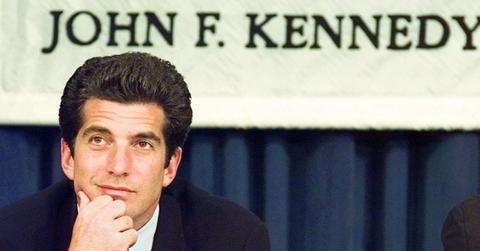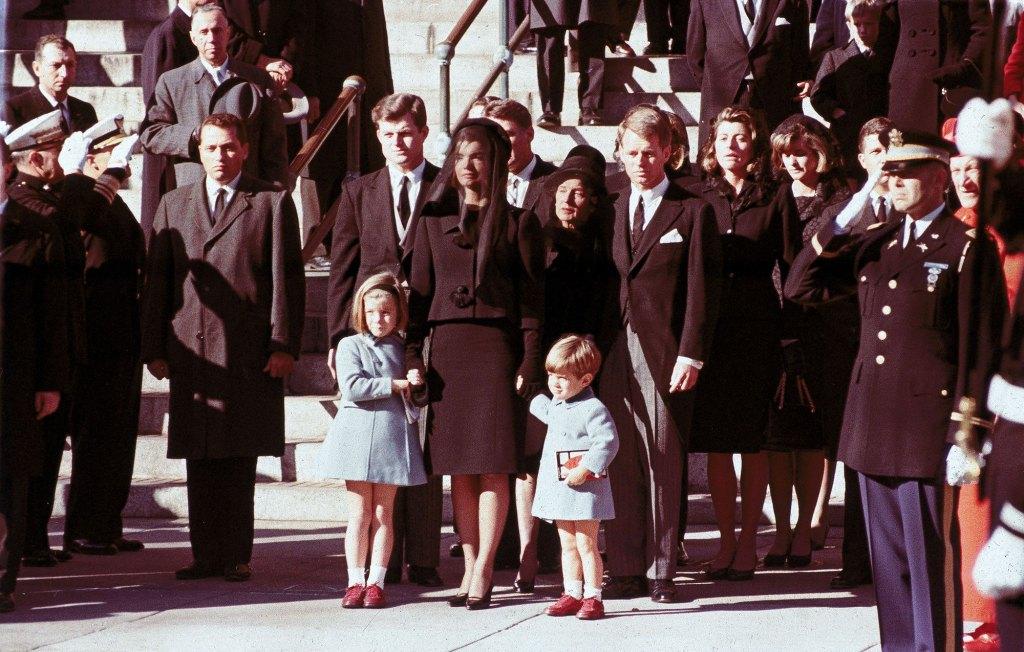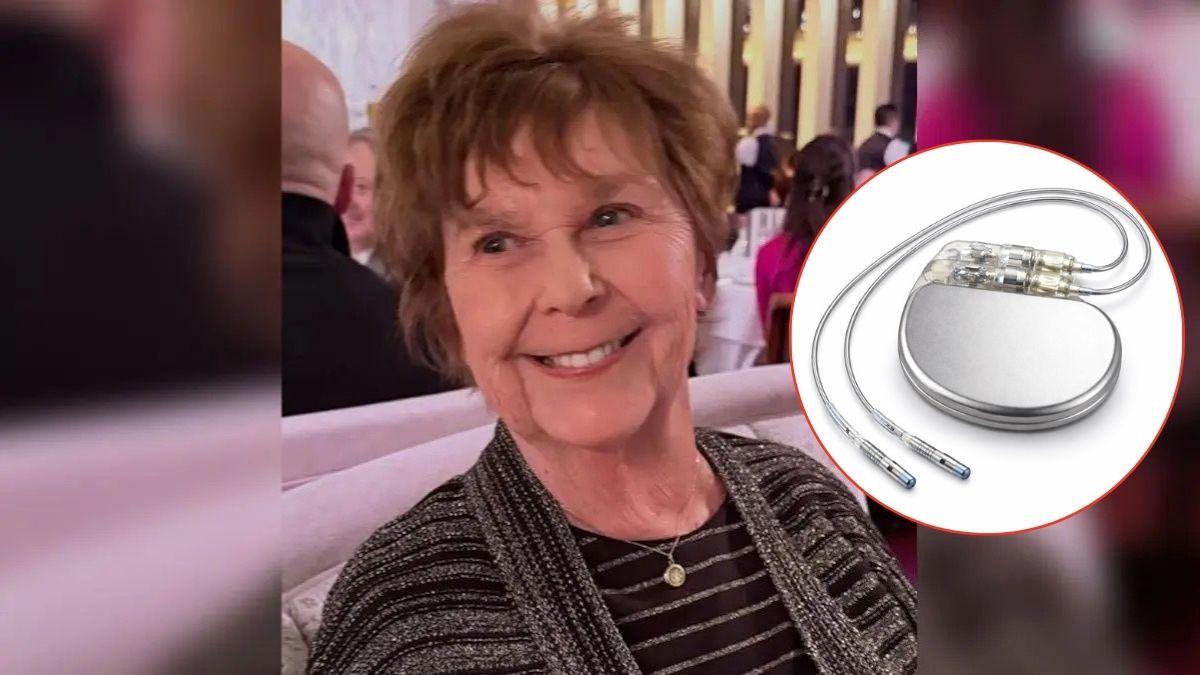Is the Kennedy Curse Real? Podcast Reveals Family's Pattern of 'Recklessness' and 'Bad Behavior'

Jan. 15 2020, Updated 8:50 p.m. ET
The coincidences are striking. Episode 2 of the “Fatal Voyage: John F. Kennedy Jr. Case Solved" podcast takes a closer look at the so-called "Kennedy Curse" — whose lives it apparently claimed, how the family was impacted, and whether or not it was a curse at all, considering the family's often reckless behavior.
"I always have been interested in the Kennedy family and the tragedies that have been ... It seems like one thing after another ... generation after generation," author John Koerner says on the podcast. "You could also call it the curse of power, that sometimes people who are in power, have these sorts of things happen. I think there’s something psychological about it."
After JFK Jr.'s father, President John Kennedy, was assassinated, the conspiracy theories began almost immediately, host Colin McLaren notes. Some believe his death was part of a cover-up — including JFK Jr., who began his own investigation into his father's death. Regardless of what really happened, JFK's passing was just one of many in a long line of mysterious deaths in the Kennedy family.

On June 5, 1968, Junior’s uncle Bobby Kennedy was assassinated just hours after winning the California Presidential Primary. One of the consultants at Bobby’s autopsy was forensic pathologist Cyril Wecht, and he believes the murder was a setup. He notes that in the cross-examination of Dr. Thomas Naguci, the Chief Medical Examiner-Coroner of Los Angeles County, the defense attorney never asked, "about the distance from which the shot was fired or its trajectory."
While many of the tragedies in the Kennedy family can be questioned as conspiracy, others could easily be attributed to their risky behavior. For instance, after Ted Kennedy's plane crashed in bad weather near Southampton, Massachusetts, in 1964 — leaving him in the hospital for five months recovering from a broken back, a punctured lung and broken ribs — he was also involved in a car crash in 1969 known as the "Chappaquiddick incident."
While driving across a bridge on his way back from Chappaquiddick Island with a young woman named Mary Jo Kopechne one night, Kennedy lost control and crashed into the water. He claimed to have dived below the surface “seven or eight times” to try to rescue her, but then left the scene of the accident and didn’t report it until the next morning. He denied driving under the influence of alcohol and said that there was nothing improper about their relationship, but doubts still linger about his actions that night.
Speaking of behavior, over the next several decades there were more risky incidents that involved JFK Jr.'s cousins. "There did seem to be this extraordinary run of accidents, reckless behavior, bad luck, call it what you will, with Bobby’s kids," reporter Andy Tillett says on the podcast. "In August 1973, when he was 20, Bobby’s oldest son Joseph crashed his Jeep in Nantucket, badly injuring his brother David’s back and permanently paralyzing David’s girlfriend, Pam Kelley ... David became addicted to painkillers, which then escalated into heroin. He was later found dead in a hotel room in Palm Beach in 1984 from an overdose of a cocktail of drugs including cocaine and Demerol."
"Then you’ve got another brother, Bobby Junior, also using heroin," Tillett continues. "He was arrested in 1983 for heroin possession following a near-overdose himself. Then finally, there’s Michael, who died in 1991 in Aspen Colorado — he had been playing football on skis without any kind of helmet or other safety equipment when he hit a tree ... the same year that Michael died, another cousin, William Kennedy Smith — who was the son of John Junior’s Aunt Jean — was arrested and charged with the rape of a young woman he had met while drinking at a bar in Palm Beach with his uncle Ted Kennedy ... At trial, however, he was acquitted of all charges."
"It seems there’s just this kind of litany of recklessness, bad behavior, criminality and bad luck running through all these kids," Tillett concludes.
Although JFK Jr. steered clear of drug abuse — possibly because of his family's history with it — he "inherited the Kennedy wild streak," McLaren explains. A reporter assigned to cover the Kennedys for most of his career, Leon Wagner, adds, "In the 60 years, almost, since John Kennedy was assassinated, there has been a death in the Kennedy family, an accidental death in the Kennedy family, every two years ... that sort of sounds like a curse to me, but, like I say, it’s a curse that they, to some degree, brought upon themselves by risky behavior."
When the Kennedys had parties at the Hyannis Port Yacht Club, "They kind of did whatever they wanted," Wagner further explains. "I made friends with a couple of them, and they told me some stories that make your hair stand on end about some of their antics ... one of the Kennedy women, Jean Kennedy, would tie ropes onto the back of her car and drive around with the kids on their bikes, hanging onto the back of it, and she wouldn’t go slow. She’d go 15, 20 miles an hour. I mean, you could have a fatality if something had, God forbid, happened."

Presidential expert Doug Wead believes the "tremendous pressure" JFK Jr. was under to make a name for himself after his father's death may have led him to "self-destruct." He says on the podcast that after JFK Jr.'s untimely passing, he thought to himself, "I don’t believe in curses, but there must be, at some subconscious level, something very strong that’s going on, some terrible pressure that’s going on.”
"The Kennedy curse was a curse that was brought on by their behavior," Wagner maintains. "It was to some degree that they just couldn’t contain themselves. They took risks and did things that ordinary people wouldn’t do and as a result along the line ... when you consider the outcome, it’s not surprising."
To learn more about the family's "curse" and JFK Jr.'s mysterious death, listeners can tune into “Fatal Voyage: John F. Kennedy Jr. Case Solved,” every Wednesday.


